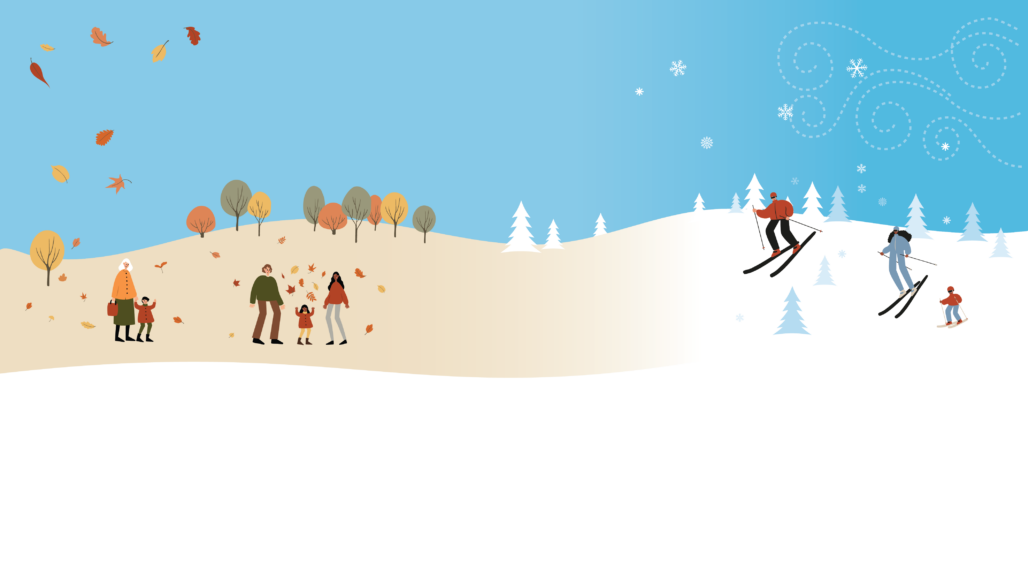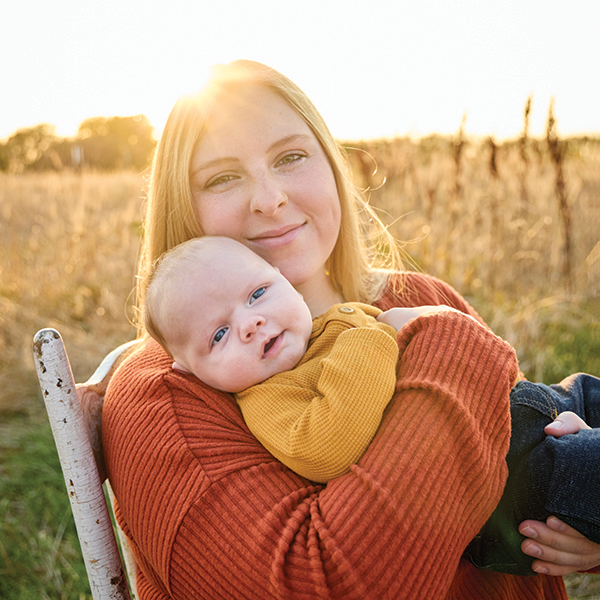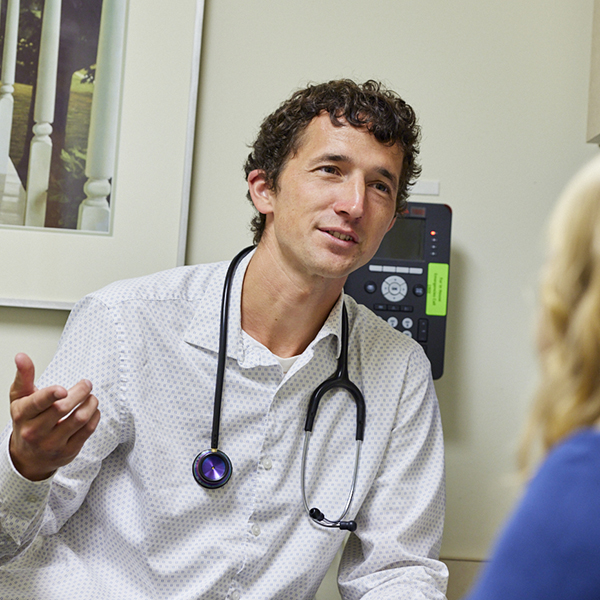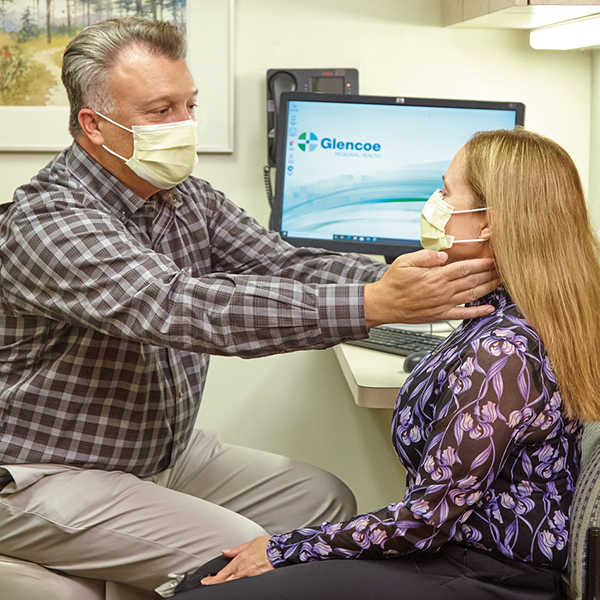Immunization Schedules In McLeod County and Surrounds
View these recommended immunization schedules for children and adults from the CDC (U.S. Centers for Disease Control and Prevention). Our providers follow these immunization schedules.
Looking for more information about diseases and the vaccines that prevent them? The Minnesota Department of Health is also an excellent source for immunization information.
We are currently offering the Moderna COVID-19 Vaccine (2024-2025 Formula):
- During a provider appointment at any of our clinics in Glencoe, Lester Prairie, and Stewart
- During a nurse-only appointment at our Glencoe Clinic on Tuesdays and Thursdays
To schedule, please call 320-864-7816.
The COVID-19 and influenza vaccine can be given at the same time per the CDC.
- Everyone ages 6 months and older should get a 2024–2025 COVID-19 vaccine.
- The COVID-19 vaccine helps protect you from severe disease, hospitalization, and death.
- It is especially important to get your 2024–2025 COVID-19 vaccine if you are ages 65 and older, are at high risk for severe COVID-19, or have never received a COVID-19 vaccine.
- Vaccine protection decreases over time, so it is important to stay up to date with your COVID-19 vaccine.
Anyone can benefit from getting a flu shot, even healthy adults. Not only will you be less likely to get sick, but you’ll prevent others from catching the flu from you. This is especially important if you live or work around others who are at high risk of serious complications from the flu – pregnant women, babies and young children, the elderly and people with chronic health problems.
We support the recommendation of the U.S. Centers for Disease Control and Prevention (CDC): Everyone six months of age and older needs a flu vaccine, every year.
Appointments
We offer three options for getting your flu vaccine:
- Appointment at any of our clinics
- Nurse Only Appointment at any of our clinics
- Drive-Thru Appointment in Glencoe
To schedule a flu vaccination, call 320-864-7816.
Flu Prevention
Adopting these healthy habits can help you prevent the spread of germs that cause seasonal flu and colds:
- Get vaccinated. This is the single best way to prevent seasonal flu.
- Avoid contact with people who are sick. When you are sick, keep your distance from others to protect them.
- Stay home when you are sick. You will help prevent others from catching your illness.
- Cover your mouth and nose with a tissue when coughing or sneezing. It may prevent those around you from getting sick.
- Wash your hands often. This will protect you and others from germs.
- Avoid touching your eyes, nose or mouth. Germs are often spread when a person touches something that is contaminated with germs and then touches his or her eyes, nose or mouth.
- Practice other good health habits. Get plenty of sleep, be physically active, manage your stress, drink plenty of fluids and eat nutritious foods.
To learn more about flu prevention, symptoms and treatment, visit cdc.gov/flu.
About RSV
Respiratory syncytial virus, or RSV, is a common respiratory virus that infects the nose, throat, and lungs. RSV symptoms make it difficult to distinguish it from the common cold or other respiratory viruses (like the flu or COVID-19). RSV spreads in the fall and winter along with other respiratory viruses.
RSV can be serious for babies, some young children, and older adults.
There are two immunizations recommended to protect infants from severe RSV: a maternal RSV vaccine given during pregnancy or an RSV antibody given to infants after birth.
RSV vaccines are recommended for ALL adults ages 75 and older and adults ages 60 – 74 who are at INCREASED RISK for severe RSV.
Talk to your primary care provider to find out if you or your family should be vaccinated against RSV. To schedule an appointment, call 320-864-7816.
For more information about RSV vaccinations, visit the CDC website.
About Shingles
Shingles is a painful rash illness. People get shingles when the varicella-zoster virus (VZV), which causes chickenpox, reactivates in their bodies after they have already had chickenpox.
About the Shingrix Vaccine
The CDC recommends that healthy adults 50 years and older get two doses of the shingles vaccine called Shingrix (recombinant zoster vaccine), separated by 2 to 6 months, to prevent shingles and the complications from the disease.
Shingles vaccination is the only way to protect against shingles and postherpetic neuralgia (PHN), the most common complication from shingles.
Talk to your primary care provider to find out if you or your family should be vaccinated against RSV. To schedule an appointment, call 320-864-7816.
Service Area
Our primary service area is McLeod County, Minnesota including: Biscay, Brownton, Glencoe, Hutchinson, Lester Prairie, Plato, Silver Lake, Stewart, and Winsted. We also service parts of Sibley County, including: Arlington, Gaylord, Green Isle, New Auburn, and Winthrop, as well as the western part of Carver County, including: Hamburg, Norwood, and Young America, and part of Renville County, including: Buffalo Lake.
FAQs
Do I need an appointment to get vaccinated at Glencoe Regional Health?
Yes, it’s recommended to make an appointment for vaccinations at Glencoe Regional Health. Scheduling in advance ensures we have the vaccine you need and helps minimize wait times. Call our clinic or use our online scheduling system to book your vaccine appointment today.
Are childhood immunizations available at Glencoe Regional Health?
Yes, Glencoe Regional Health offers a full schedule of childhood immunizations to protect children from vaccine-preventable diseases. Our pediatric and family medicine providers follow CDC-recommended vaccine guidelines and provide care in a safe, child-friendly environment. Whether it’s for infants, toddlers, or school-age children, we help you stay on track with routine childhood vaccines.
Does Glencoe Regional Health offer travel vaccines?
Yes, travel vaccines are available at Glencoe Regional Health. If you’re planning international travel, our team can help you determine which vaccinations or preventive medications you may need based on your destination. It’s best to schedule a travel consultation at least 4–6 weeks before your trip to ensure full protection.
Can adults get caught up on missed vaccines at Glencoe Regional Health?
Absolutely. Adults can get caught up on missed vaccinations at Glencoe Regional Health. Whether you missed childhood vaccines or need boosters for illnesses like tetanus, shingles, or hepatitis, our providers can review your immunization history and create a personalized plan to update your adult immunizations.
How can I access my vaccination records?
You can easily access your vaccination records through MyChart. You can also request printed copies of your immunization records by contacting our clinic directly. Keeping track of your vaccines is important for school, work, travel, and overall health.









